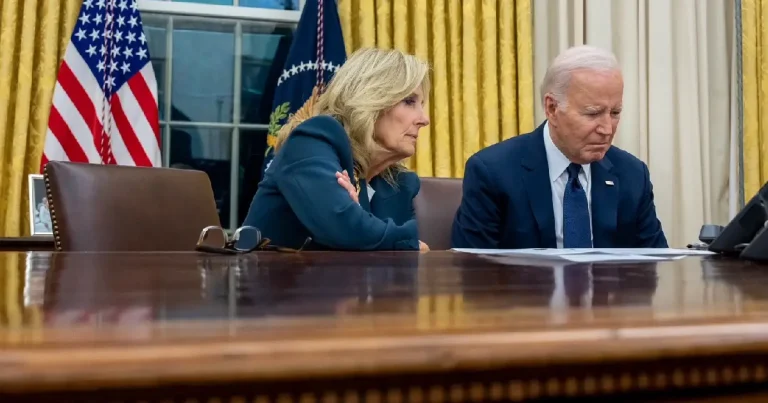20-10-2023 (WASHINGTON) In a move aimed at bolstering Israel’s military capabilities, President Joe Biden announced his intention to seek billions of dollars in military aid for Israel as tensions rise and the possibility of an invasion of Gaza looms. Speaking from the Oval Office of the White House, Biden emphasized the need to support Israel and ensure its security in the face of mounting threats.
During a televised address on Thursday evening, Biden addressed the ongoing conflict between Israel and Hamas, as well as Ukraine’s struggle against Russia’s invasion. He condemned Hamas for seeking to “annihilate” Israel’s democracy and stressed the importance of providing relief to Palestinian civilians in Gaza who are suffering from a lack of basic necessities.
“We cannot ignore the humanity of innocent Palestinians who only desire peace and opportunities,” Biden stated, highlighting the urgency to address the dire humanitarian situation in Gaza.
To reinforce Israel’s military capabilities, Biden revealed his plans to request additional funding from Congress. Sources familiar with the matter estimated the aid package to amount to a staggering $14 billion. The proposed funding aims to enhance Israel’s qualitative edge and strengthen its military prowess, thereby safeguarding America’s national security interests.
“This is a smart investment that will yield long-term dividends for American security,” Biden asserted, emphasizing the significance of supporting critical partners like Israel.
Meanwhile, on the ground in the Gaza Strip, Israel appears to be inching closer to a potential full-scale invasion. The Israeli military has been amassing troops and equipment near the Gaza border, indicating preparations for a possible offensive. Israeli Defense Minister Yoav Gallant addressed troops stationed at the border, declaring that the command for an incursion into Gaza would be imminent.
Israel has been conducting airstrikes on Gaza since the rampage by Hamas gunmen on October 7, which resulted in the deaths of 1,400 Israelis. The Gaza Strip, home to 2.3 million people, has been under siege by Israel, exacerbating the humanitarian crisis. Jordanian Foreign Minister Ayman Safadi expressed concerns, stating that all indications suggest that the situation is deteriorating rapidly.
In an attempt to alleviate the suffering in Gaza, Biden sought to broker a deal during his recent visit to Tel Aviv. However, the success of these efforts has been limited. While Israel and Egypt agreed to allow 20 trucks carrying relief supplies into Gaza, the actual delivery has faced hurdles and delays. The newly appointed US Special Envoy for Middle East Humanitarian Issues, David Satterfield, is currently negotiating the details of aid deliveries with Israeli and Egyptian officials.
The United Nations has called for aid to be restored to pre-conflict levels, with a target of 100 trucks per day. UN Secretary-General Antonio Guterres plans to visit the Rafah border crossing from Egypt to Gaza to assess the situation and facilitate aid distribution. However, Israel’s ambassador to the UN, Gilad Erdan, criticized the move, accusing Guterres of prioritizing aid to “terrorists.”
As tensions escalate, there are growing concerns that the conflict could extend beyond Gaza. A hospital explosion in Gaza on Wednesday, which Palestinians blamed on an Israeli airstrike but Israel attributed to a failed rocket launch by Palestinian militants, has further inflamed tensions. Additionally, the Pentagon reported that a US Navy warship intercepted three cruise missiles and several drones launched by the Houthi movement from Yemen, potentially targeting Israel. Hezbollah, a Lebanese militant group backed by Iran, also fired rockets at an Israeli position, sparking an artillery response.
The situation remains highly volatile, with the international community closely monitoring developments and urging all parties to exercise restraint. As Biden seeks significant military aid for Israel, the region braces for the potential consequences of an invasion of Gaza and the widening of the conflict’s scope.




